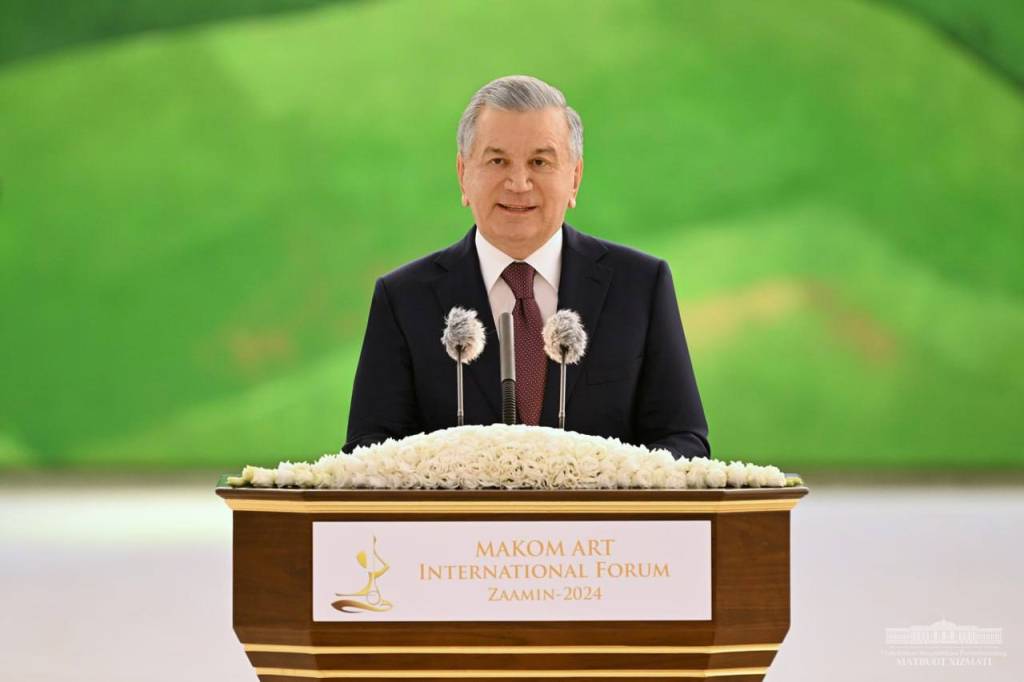
On June 27, the Second Maqom Art International Forum was solemnly opened in Zaamin district of Jizzakh region.
The Maqom Art International Forum, organized on the initiative of the President, was first held in 2018 in Shakhrisabz. Later, due to the pandemic, the forum was postponed. This year, it resumes with new spirit and enthusiasm.
At the opening ceremony, the President delivered a speech, noting the history and significance of maqom art.
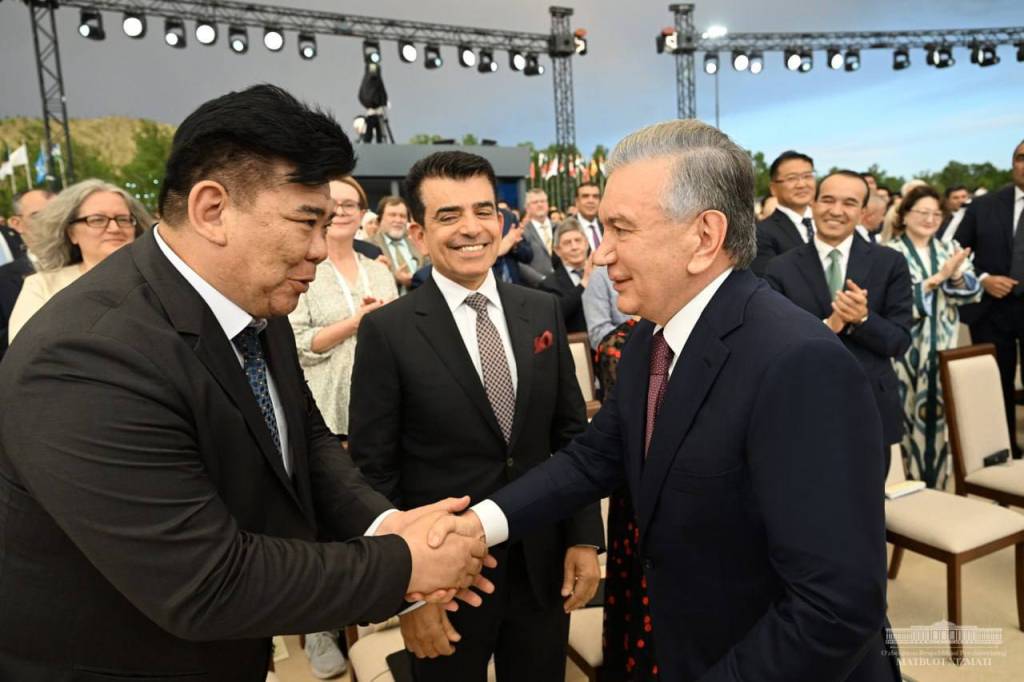
“Maqom art, which symbolizes our ancient history, rich culture, and values, with its deep philosophy, unique artistic techniques, and creative traditions, occupies an important place in our spiritual life. Maqom is valuable as a unique art form, glorifying universal human values with the most sublime notes”, Shavkat Mirziyoyev said.
Maqom developed rapidly in the Muslim East and reached its peak during the First and Second Renaissance. Abu Nasr Farabi, in his “Grand Book on Music”, cited the theoretical and practical aspects of music using the oud instrument. Great scientists such as Abu Raikhan Beruni, Ibn Sina, Alisher Navoi, and Zakhiriddin Muhammad Babur created unique musical works and contributed considerably to the development of maqom.
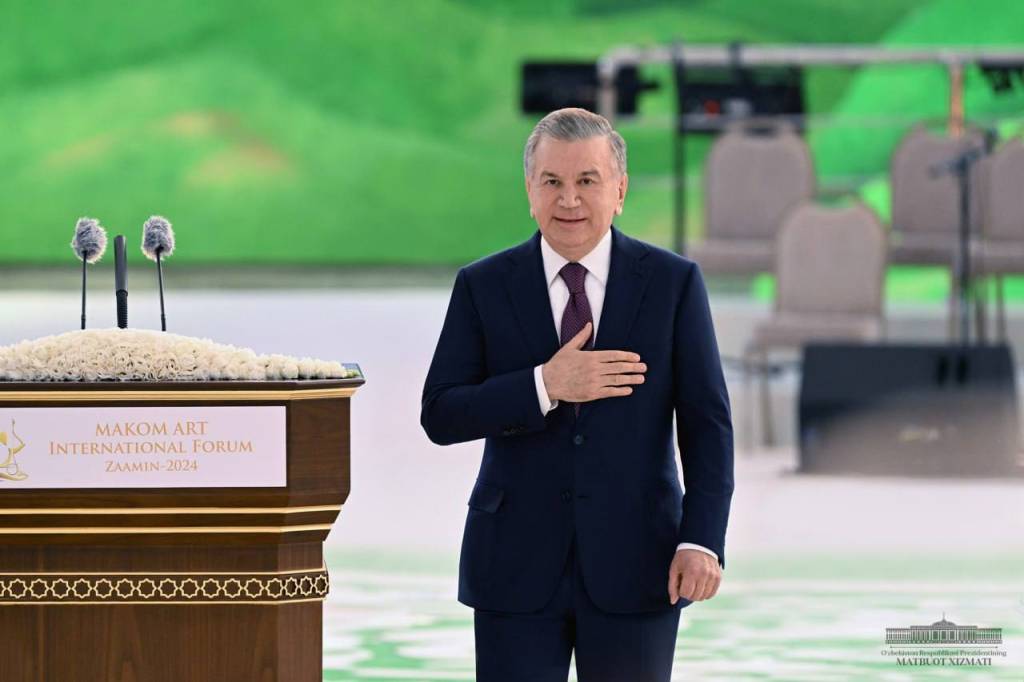
In the 20th century, these traditions were worthily continued by art scientists such as Abdurauf Fitrat, Yunus Rajabi, singers Khojikhon Boltayev, Komiljon Otaniyazov, Turgun Alimatov, Fattohhon Mamadaliyev, and others.
The Head of state emphasized the significant contribution of the outstanding statesman Sharaf Rashidov to the preservation of maqom art. In those difficult times, the beginning of scientific study and international promotion of the maqom art was laid at the Tashkent State Conservatory. A maqom ensemble was created. The immortal masterpieces of “Shashmaqom” were recorded in notes and published in six volumes.
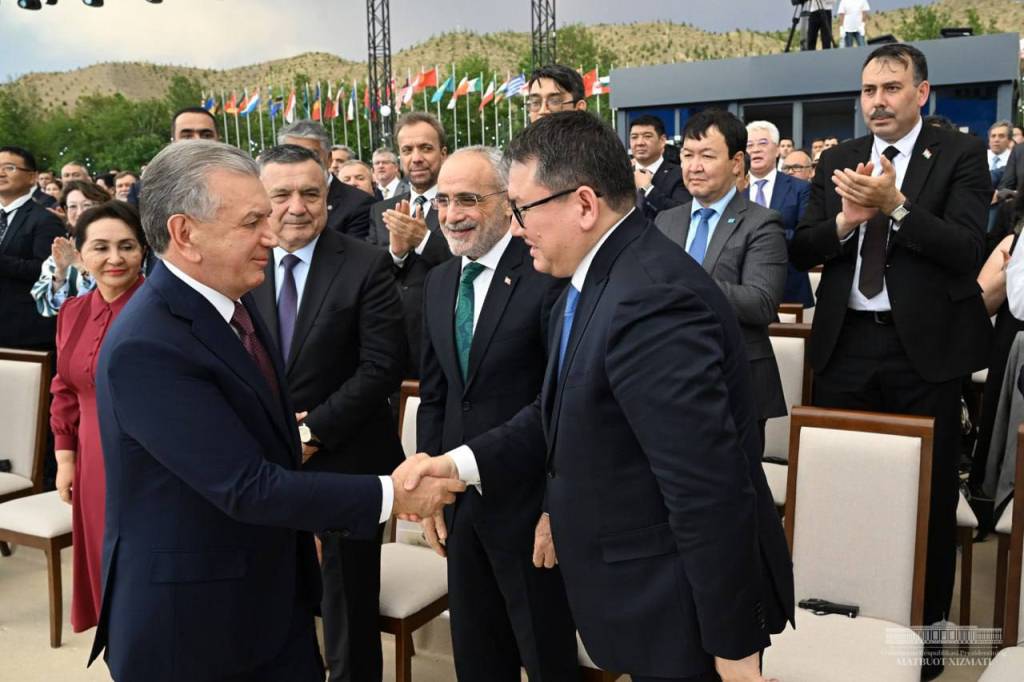
Our unique maqoms, the pearl of classical musical art, are included in the UNESCO List of Intangible Cultural Heritage of Humanity.
This art has reached a new level thanks to the President’s attention. Today, maqom art is continuously studied throughout the country at all stages of education – from primary to academic. A Maqom Center is being built in Tashkent. National contests are held to support composers, singers, and musicians actively working in this direction.
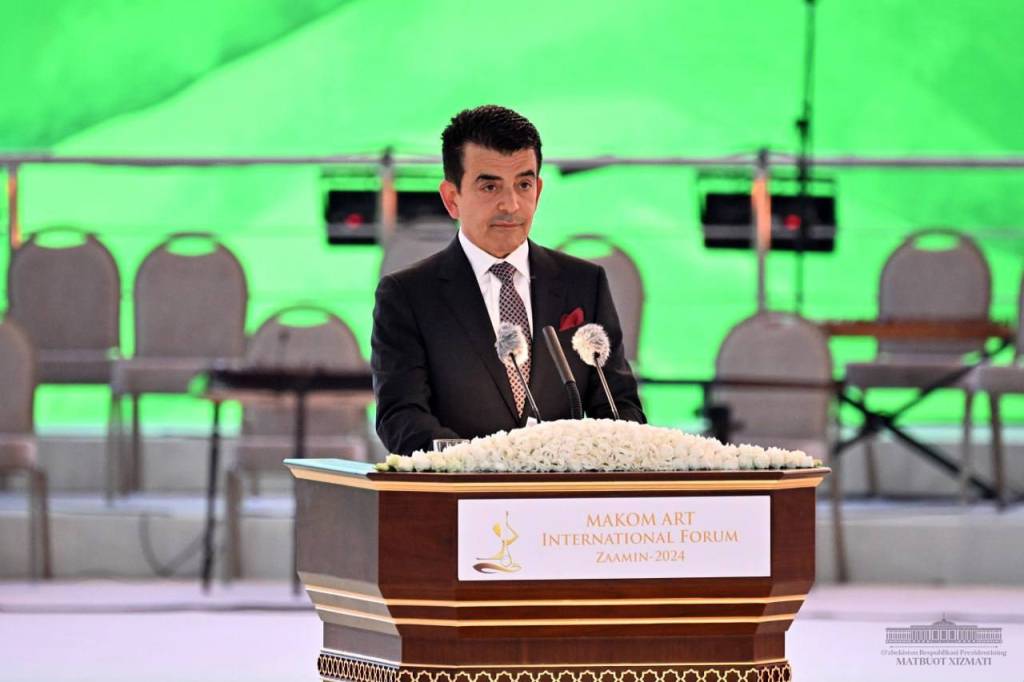
The Head of state, on behalf of all the people, expressed sincere gratitude to the artists who dedicated their lives to such an honorable and responsible cause.
“The Forum is undoubtedly a great holiday for creative people who love art with all their hearts and unite around the ideals of goodness and humanism. May maqom always serve as an inexhaustible source of strength and inspiration to art lovers worldwide!” the Head of state said.
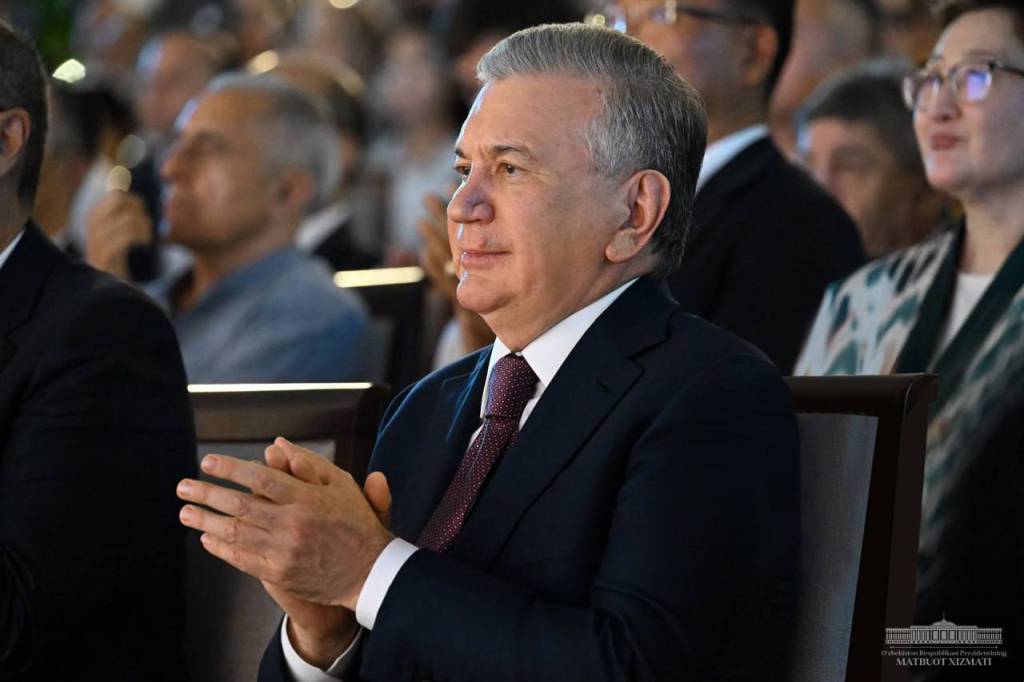
The ceremony was also attended by the President of the 42nd Session of the UNESCO General Conference, Simona-Mirela Miculescu, and the ICESCO Director-General, Dr. Salim M. AlMalik, who welcomed the participants and guests.
The event was also attended by TURKSOY Secretary General Sultan Raev, President of the Turkic Culture and Heritage Foundation Aktoty Raimkulova, Secretary General of the Parliamentary Assembly of Turkic States Mehmet Süreyya Er, Deputy Secretary General of the Commonwealth of Independent States Nurlan Seitimov, Chief Advisor to the President of Türkiye Yalçın Topçu, Advisor to the President of Kazakhstan Malik Otarbayev, Assistant to the President of Tajikistan on Social Development, Culture and Public Relations Abdullo Rahmonzoda, Minister of Culture, Information, Sports and Youth Policy of Kyrgyzstan Altynbek Maksutov, Minister of Culture of Azerbaijan Adil Gabil oglu Karimli.
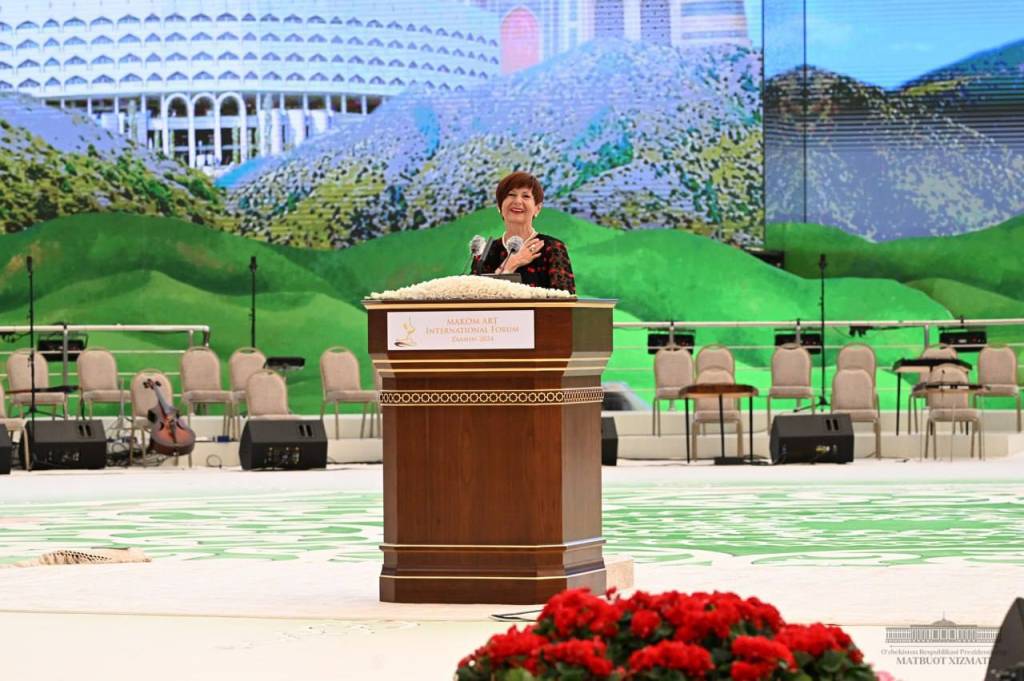
The festival includes about 400 guests from more than 80 countries in Asia, Europe, North and South America, and Africa.
A colorful concert took place, including classical songs and dances.
The Zaaminsay complex, where the festival takes place, is festively decorated. Exhibitions are organized throughout the vast area to demonstrate our people’s rich culture and magnificent applied arts.
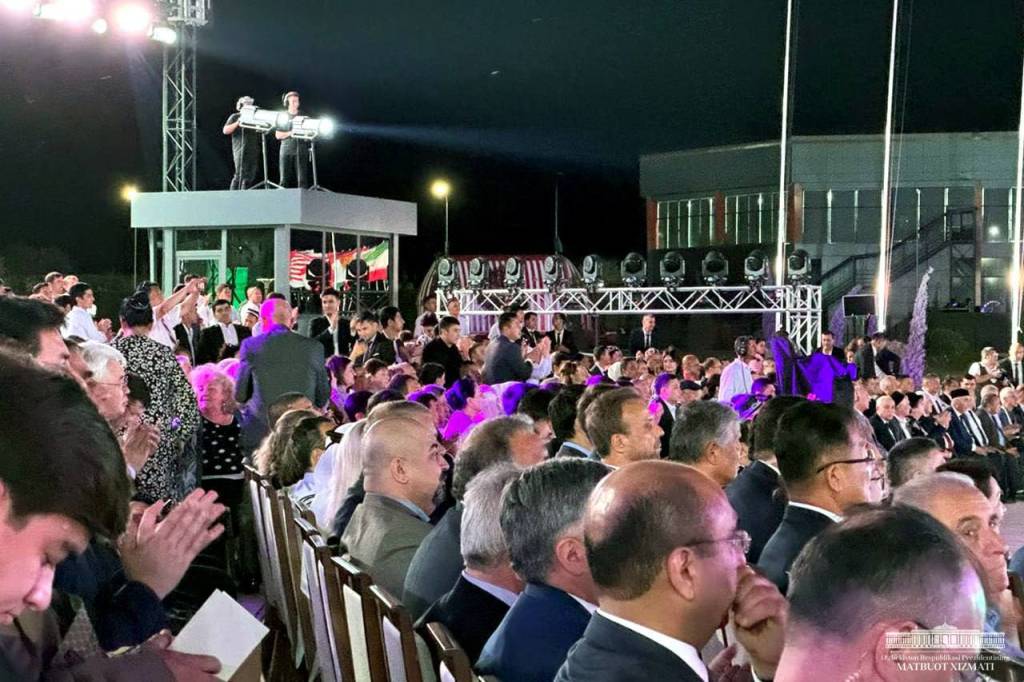
The Head of state and foreign guests inspected these exhibitions and performances of folklore groups.
The forum will run until June 30. In the end, the winners in the nominations “Best Maqom Ensemble,” “Best Instrumental Soloist”, and “Best Vocal Soloist” will be announced. An international conference and roundtable discussion will be held on the theoretical and practical foundations of maqom art.
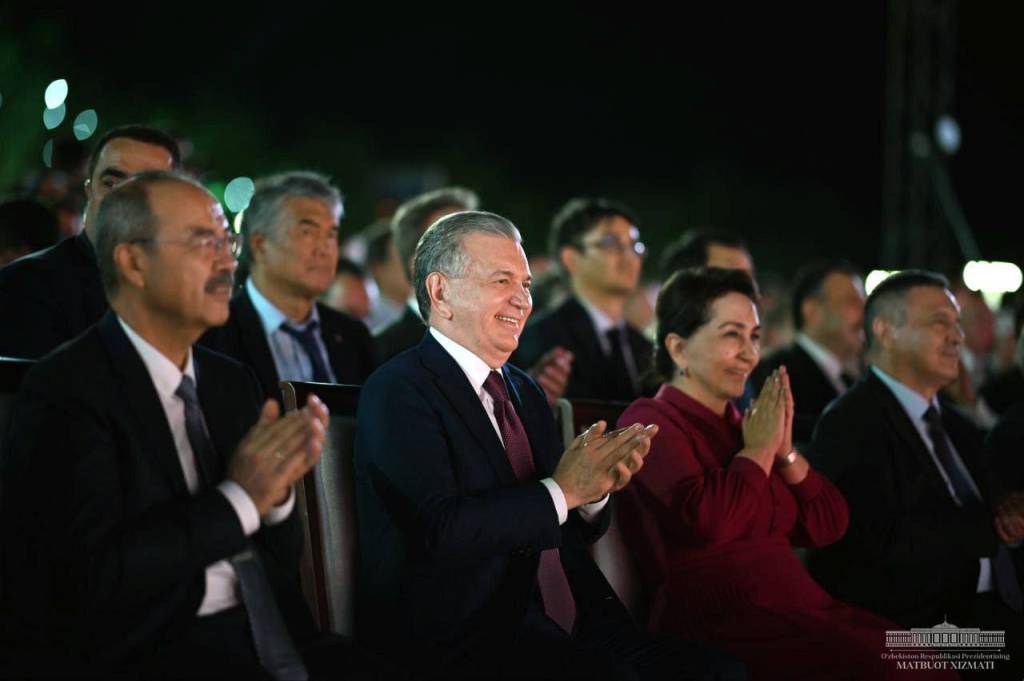
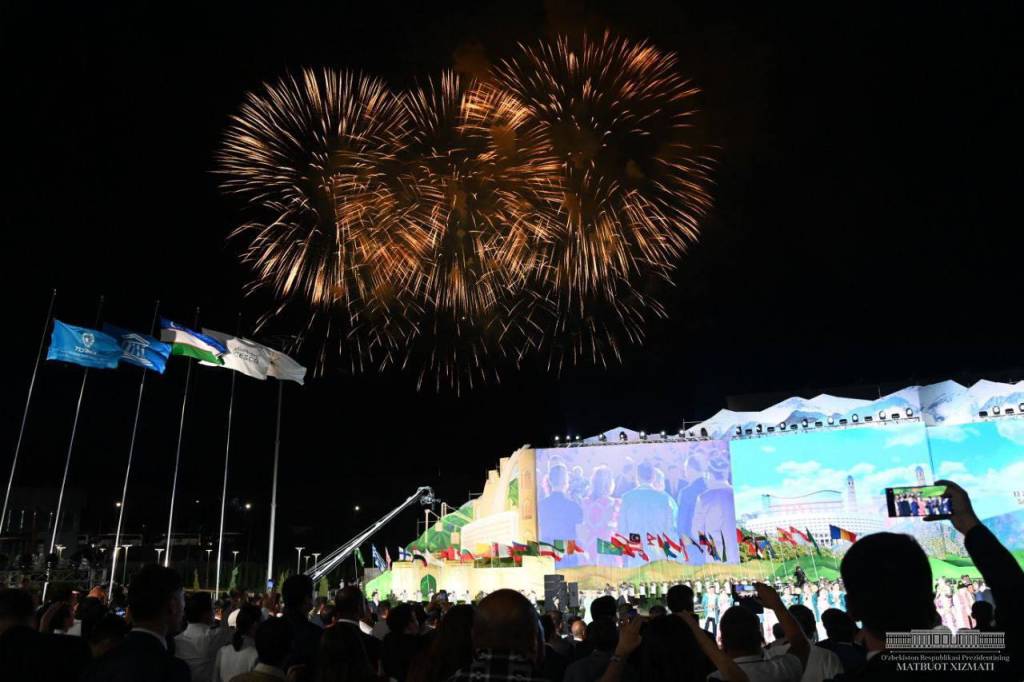
UzA